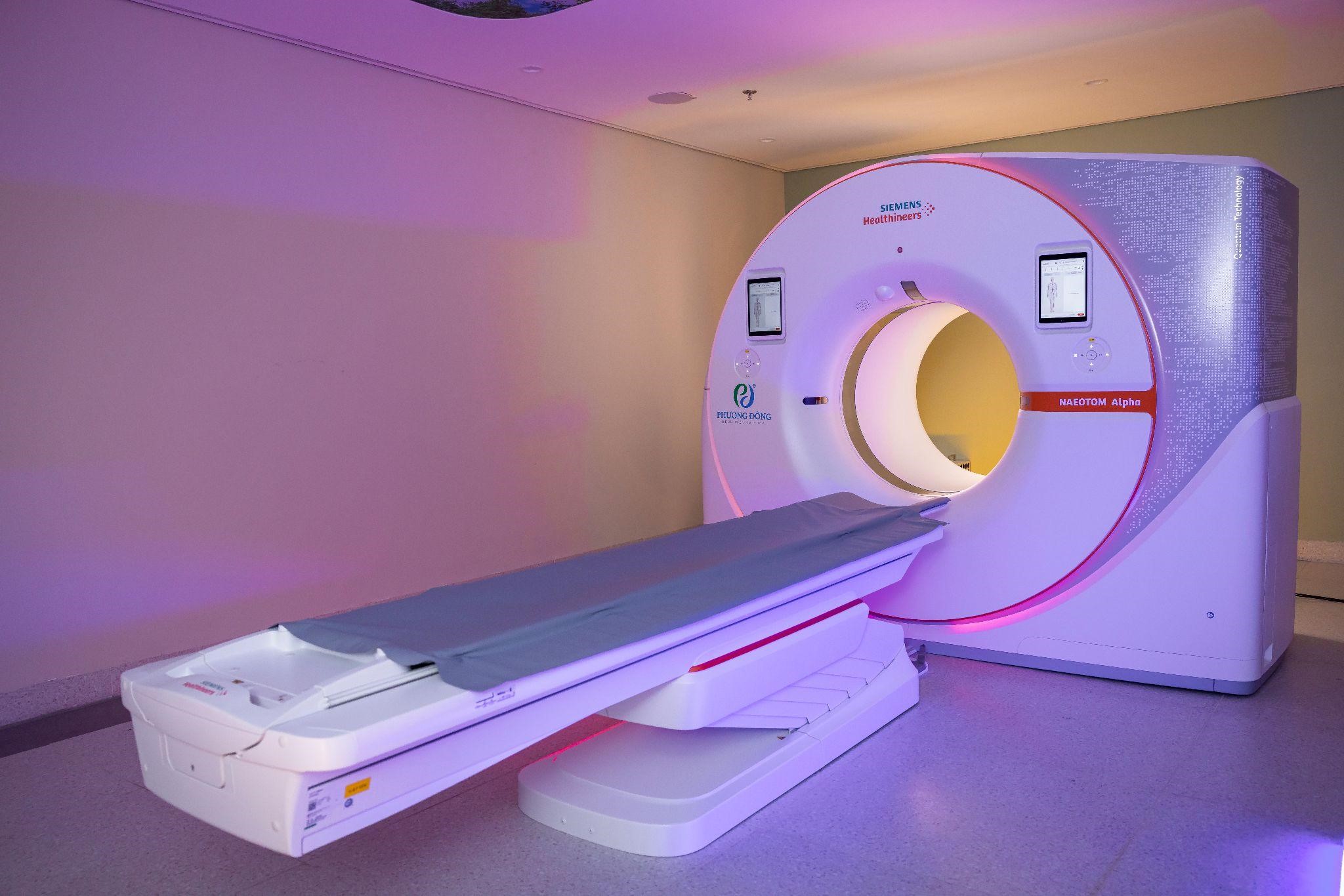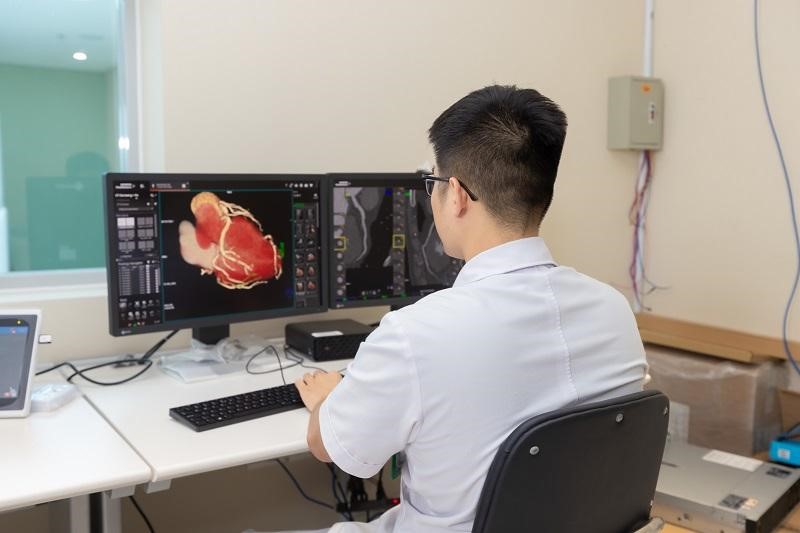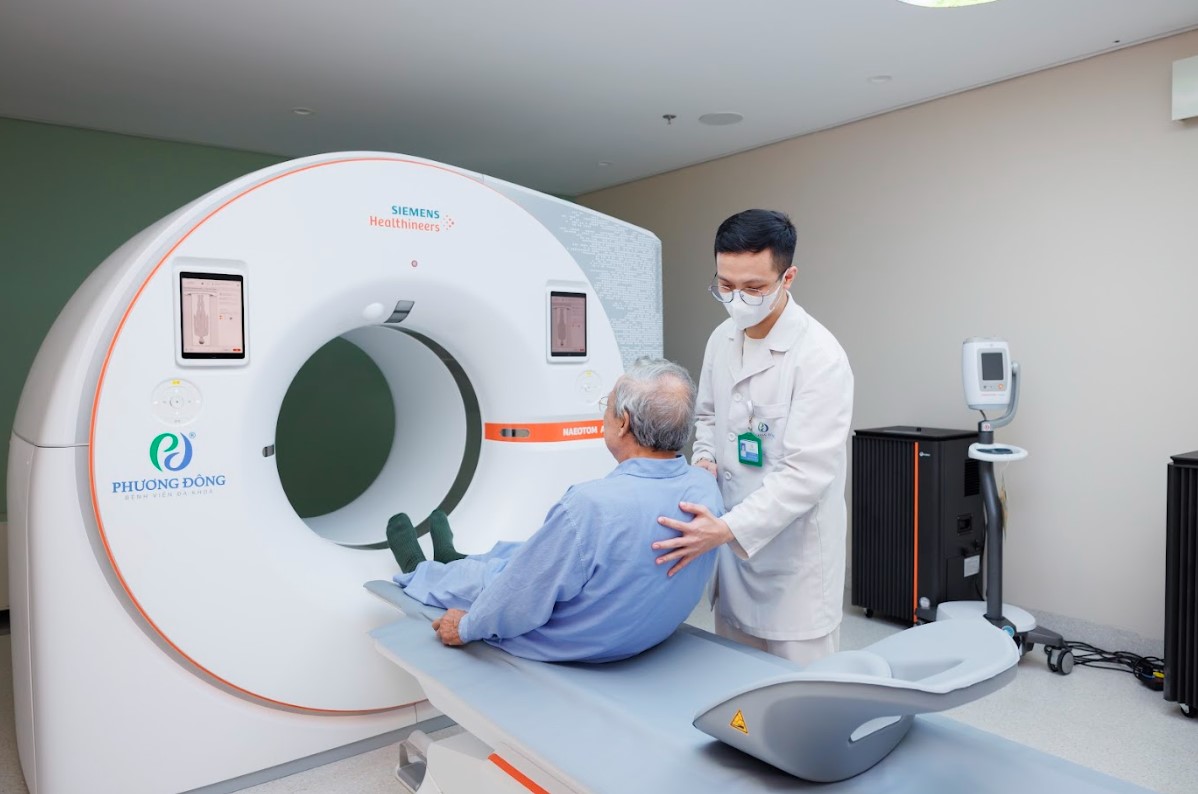This next-generation photon-counting CT scanner is the Naeotom Alpha, a photon-counting computed tomography system manufactured in Germany. This is the first such machine to be used in a hospital in northern Vietnam. The hospital stated it invested hundreds of billions of Vietnamese dong in this equipment, recognizing the significance of CT scans in health screenings.
 |
Close-up of the Naeotom Alpha quantum computed tomography system at Phuong Dong Hospital. Photo: Hospital provided |
Close-up of the Naeotom Alpha quantum computed tomography system at Phuong Dong Hospital. Photo: Hospital provided
CT (computerized tomography) scanning is a diagnostic imaging technique that uses X-rays and computers to create cross-sectional images of the body, allowing doctors to "see through" the body in 3D slices, which is not possible with conventional ultrasound or X-rays. This method helps detect minute lesions, from tumors (both benign and malignant), vascular malformations, atherosclerosis, and inflammation, even before any symptoms appear.
CT is also considered the gold standard for screening leading silently progressing and dangerous diseases such as lung, liver, kidney, and adrenal gland cancers; cardiovascular and coronary artery disease; stroke; bone tumors; and osteoarthritis. In many developed countries, regular CT screening is recommended for middle-aged and older individuals to reduce mortality rates due to late detection.
 |
Doctors viewing images taken with the Naeotom Alpha. Photo: Hospital provided |
Doctors viewing images taken with the Naeotom Alpha. Photo: Hospital provided
According to experts, the arrival of the Naeotom Alpha—a whole-body quantum computed tomography system clinically recognized by the US Food and Drug Administration (FDA)—has broken through the diagnostic imaging limitations of conventional CT scanners. The device also offers increased safety for patients.
With its fast whole-body scanning speed, the Naeotom Alpha system reduces motion-induced noise and blur, limiting the need for anesthesia. This is beneficial in emergency cases, strokes, and accidents. Furthermore, the integration of comprehensive artificial intelligence (AI) provides high-resolution images, enabling doctors to more accurately diagnose the seeds of disease.
The Naeotom Alpha uses one of the world’s lowest doses of X-rays and contrast agents, almost completely eliminating the risk of radiation exposure (the X-ray dose is equivalent to natural background radiation), making it safer for children and pregnant women (if indicated).
Cardiovascular patients (with artificial heart valves, stents, etc.) can undergo CT scans with the Naeotom Alpha system to assess restenosis and detect endovascular leaks without requiring digital subtraction angiography (DSA), an invasive imaging technique.
 |
The first patients using the Naeotom Alpha at Phuong Dong Hospital. Photo: Hospital provided |
The first patients using the Naeotom Alpha at Phuong Dong Hospital. Photo: Hospital provided
Phuong Dong General Hospital’s launch of the Naeotom Alpha system creates opportunities for Vietnamese people, especially in the north, to access modern global health screening technology domestically at a much lower cost than going abroad, as was previously necessary.
A hospital representative shared that in the fight against dangerous diseases, early diagnosis and accurate treatment are crucial. Therefore, technological investments are truly meaningful and should be further encouraged.
Kim Anh












